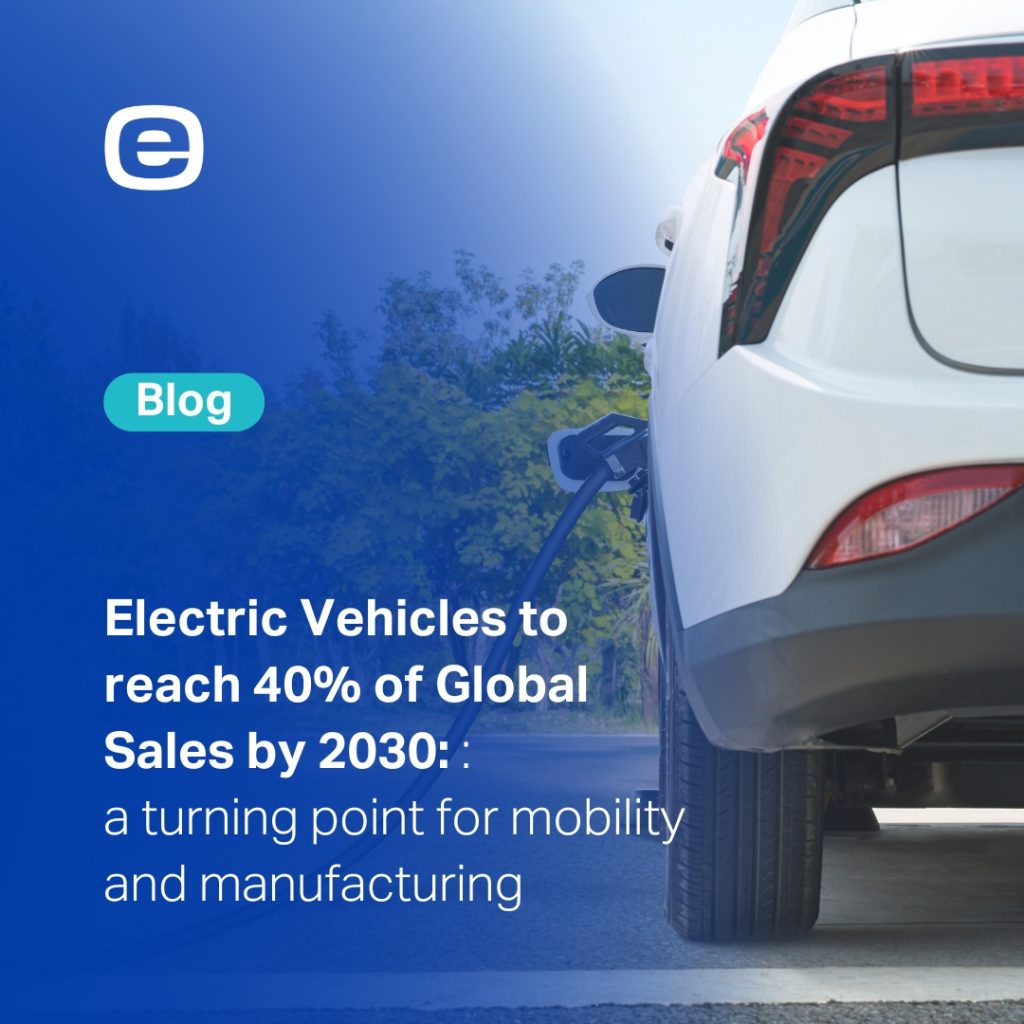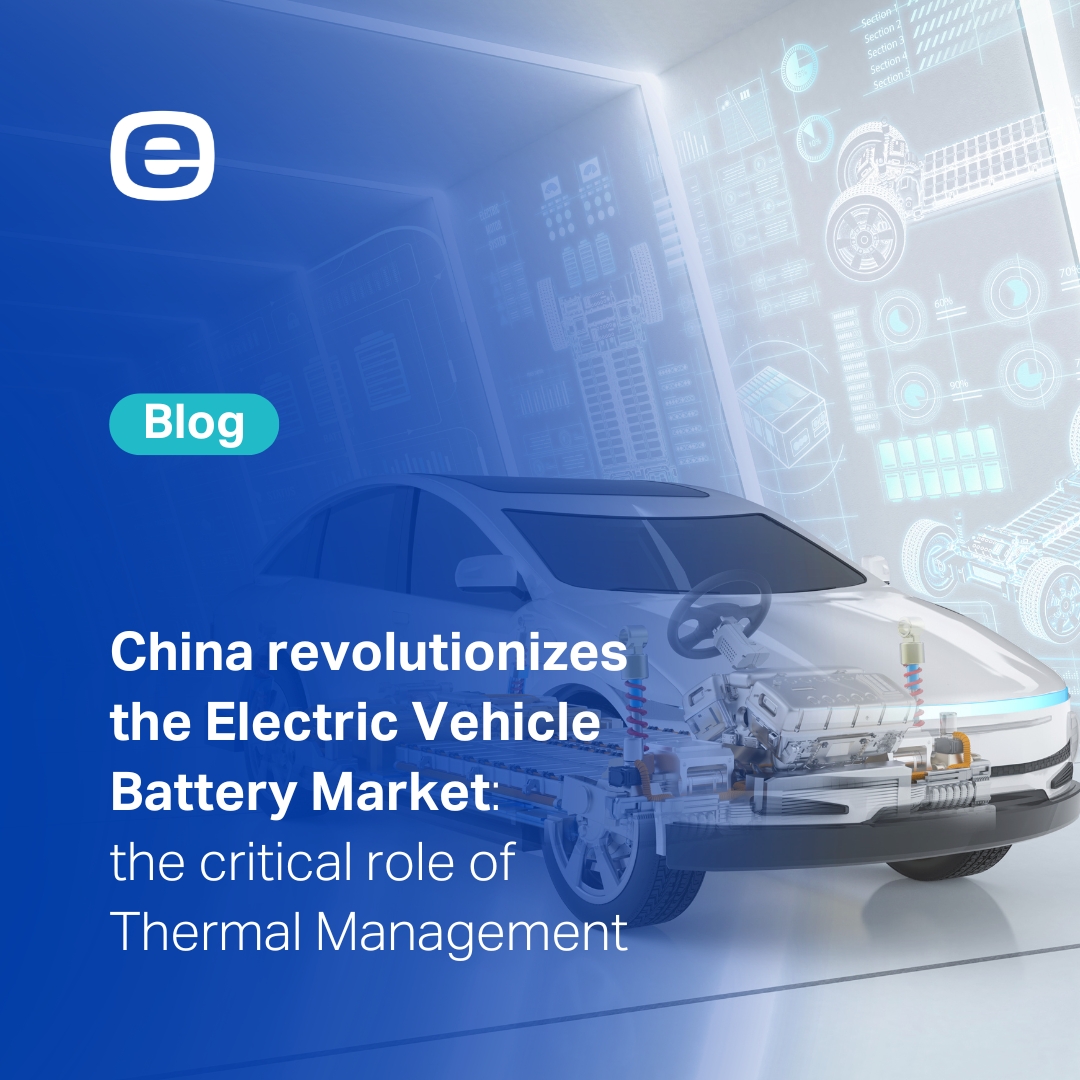21 July, 2025
ELECTRIC VEHICLES TO REACH 40% OF GLOBAL SALES BY 2030: A TURNING POINT FOR MOBILITY AND MANUFACTURING
According to the latest Global EV Outlook 2025 from the International Energy Agency (IEA), electric vehicles are set to represent 40% of global new car sales by 2030. In the most advanced markets—China, Europe, and the United States—this share is already expanding rapidly. In 2024 alone, more than 17 million EVs were sold, marking a 25% increase from 2023. Projections for 2025 estimate sales will exceed 20 million units, confirming that electrification is no longer emerging—it is becoming the new standard.
The global EV stock is expected to surpass 250 million vehicles by 2030, more than four times today’s total. Passenger cars will dominate this growth, but light commercial vehicles and two/three-wheelers will also see growth. This rapid adoption reflects not just consumer demand, but also industrial readiness, regulatory alignment, and technological maturity.
As this transformation accelerates, manufacturers must rethink systems integration, safety, and thermal efficiency at scale. That is where companies like Neklar are creating tangible impact—by developing ready-to-implement solutions for battery thermal management and critical system protection.
Thermal management tailored to electric vehicle performance
One of the most pressing technical challenges of EV design is managing battery heat during operation and fast charging. Neklar addresses this with its EV Battery Cooling solutions, based on multilayer aluminum plates that dissipate heat quickly and evenly. These systems are engineered to integrate directly into battery modules, ensuring high thermal stability even under peak loads.
Validated under extreme conditions—including vibration, thermal cycling, and corrosion—these cooling plates meet OEM safety and performance requirements. Their lightweight, modular design supports easy integration into multiple vehicle platforms, enabling automakers to scale without compromising system efficiency.
In a global EV market projected to exceed 3 TWh in battery demand by 2030, advanced cooling will not be a secondary feature—it will be a critical enabler of safety and longevity.
Shielding and protection for high-density electronics
As EVs become more electronic and connected, new risks emerge. Electromagnetic interference (EMI) and thermal stress can degrade system performance or cause failures in sensitive modules. Neklar’s EV Electromagnetic & Fire Shielding products are built to counter these risks.
Their solutions use conductive, lightweight materials combined with passive fire protection barriers. This dual-layer approach provides structural and functional protection, shielding power electronics, control units, and communication systems from thermal events and EMI-related disruptions.
These shielding solutions also reduce noise and vibration, improving vehicle diagnostics and driving experience. They are adaptable to a wide range of vehicle architectures and align with the production flexibility demanded by OEMs and Tier 1 suppliers.
Scaling up for a changing energy and mobility landscape
According to the IEA, EVs will consume 780 TWh of electricity annually by 2030, a fivefold increase compared to 2023. This growing demand places additional pressure on components that support thermal stability and energy conversion. Efficient solutions for heat management, EMI shielding, and modular integration will be essential—not optional.
Neklar is responding with an industrial model based on automation, standardization, and scale. Its manufacturing systems are built to deliver consistency while supporting flexibility across vehicle types—from passenger cars to heavy-duty vehicles and light commercial fleets.
By enabling safe, high-performance EV systems at scale, Neklar contributes directly to the technological backbone of global electrification.
Technology aligned with a structural market shift
The transition to electric mobility is no longer on the horizon—it’s already shaping today’s market. To stay ahead, manufacturers must count on suppliers offering robust, scalable, and forward-ready technologies.
Neklar’s portfolio responds precisely to that need. Its cooling and shielding systems not only protect thermal and electronic performance, but also contribute measurable industrial value: adaptability, energy efficiency, and production scalability.
Electric vehicles are expected to account for 40% of all new car sales within the decade. In this context, partnering with suppliers equipped to meet such demand is not just advantageous—it’s a strategic imperative.








